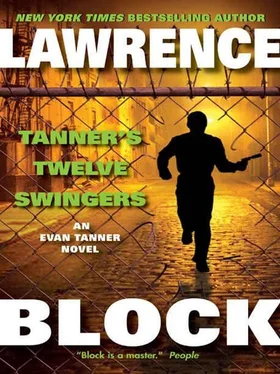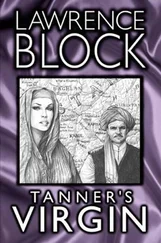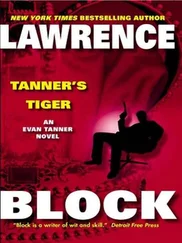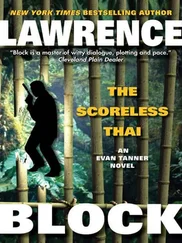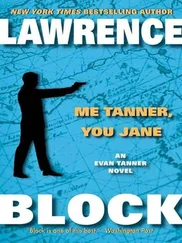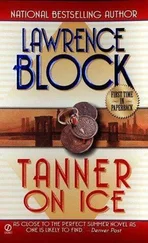“No.”
“Is it important?”
“I don’t know.”
“What will you do with it all?”
“I don’t know that either.” I hefted the file. “There’s so damned much of it.” I got to my feet. “You’ll have to help me, Milan. Sandor, is there a room we can use for a few moments? And I will need a scissors and a few yards of oilcloth.”
An hour or so later we crossed the border into Czechoslovakia in the false bottom of a half-ton panel truck. I had never before known that panel trucks could have false bottoms. Suitcases, yes. But panel trucks?
This one – Kodaly’s own – did. It was a sort of panlike arrangement that fitted between the bottom of the trunk compartment (or whatever the hell they call that part of the trunk where you put things) and the axles and such below. It was not quite as deep as a coffin and considerably less comfortable. In it Milan Butec and I rode in silence. There was no point in talking – one couldn’t hear anything but the road noise, which was quite deafening. There wasn’t enough room to breathe deeply or enough air to make it worthwhile anyway. There was no room to move around, or to scratch oneself, or to do much of anything, really, but lie there and wait for the interminable ride to terminate. The truck started, the truck stopped, the truck started, the truck stopped, the truck started, the truck stopped, and finally Sandor Kodaly let us out of that horrible dark hole.
I got out at once and did all the things I had been unable to do – yawned, took deep breaths, jumped around, scratched myself, and otherwise assured myself that I was still able to move. I looked for Milan and saw that he was still lying there in the false bottom of the truck. For a horrible moment I thought he had quietly and uncomplainingly died, but then I realized that he was simply too stiff to move by himself. I helped him out, and he moved very slowly and stiffly, like Robby the Robot, until at last his blood began circulating again and his muscles remembered their proper functions.
I asked Sandor where we were.
“Near Medzilaborce.”
I tried to remember where Medzilaborce was.
“But that’s in the north,” I said. “That’s just a few miles from the Polish border.”
“Perhaps fifteen kilometers.”
“I thought you were only taking us across the border.”
The fine, sensitive features relaxed in a smile. “So I drive an extra hour here and an extra hour back. I kept you several hours at my house while I checked on you. That was an indignity, albeit a necessary one. But perhaps I can even the tally by helping you a little further along on your journey, you see? Now you do not have all of Czechoslovakia to cross. An hour’s walk, and you will be in Poland.”
I started to say something, something appropriately grateful, but all at once Milan shouldered me aside and stepped in front of Kodaly.
“You drove us an extra hour,” he said.
“It was my pleasure-”
“You left us an extra unnecessary hour in that bouncing, dreary, cramped metal coffin. We were already across the border, we were already in Czechoslovakia, but you left us in there for an hour of bouncing and no breathing and no moving and-”
“It was uncomfortable?” Kodaly seemed honestly puzzled. “I have never been in there, it never occurred to me. It was bad for you in there? And to think, once we crossed the border, you could have been riding in the truck with me. But it never even occurred to me…”
Milan was unable to take any more of this. While I made our apologies and expressed our gratitude to Kodaly, he stalked sullenly down the road toward Poland. He walked stiffly, partly because he was trying to hold his temper in check, partly because his legs were still stiff from the long, cramped ride, and partly, too, because he had little oilcloth packets taped all over him, little packets filled with papers covered with chicken tracks.
I had to run to catch up with him. And it was ten minutes before he could relax enough to speak to me. He was that furious. The idea that anyone could have been so utterly insensitive to his comfort utterly maddened him.
“It’s an hour’s walk to the border,” I told him. “If you wish, we can wait until morning.”
“Why would we want to do that?”
“If you’re tired-”
“Tired? Angry, yes. Exhausted, yes. Tired I am not.”
“Then, you would rather cross the border tonight?”
“As soon as possible, Evan.” He heaved a sigh. “I have never been in Czechoslovakia before. I never intend to return. I wish to be out of Czechoslovakia as quickly as possible.”
“Actually it’s a beautiful country-”
“I do not doubt this for a moment, Evan. But I do not want to see it. I want to remember nothing whatsoever of Czechoslovakia but that horrible ride and a quick walk through the darkness. That and nothing more. And with only that unpleasant empty memory to dwell upon, I will thus soon forget the entire incident. And the sooner I forget that horrid ride, the happier I will be. That stupid man! That boor! That damned truck!”
We saw aslittle of Czechoslovakia as possible. Had we seen any less, we wouldn’t have been able to stay on the road. As it was, there was only a thin sliver of moon, and we walked through almost total darkness. The road cut to the east and would have taken us out of our way, so we left it after a mile or so and cut directly north through a sparse forest of scrub pine. We heard some rifle shots off in the distance. Milan was alarmed until I suggested that it was probably just a poacher trying to get himself a deer or roebuck.
The border, when we reached it, was positively anticlimactic. Just a simple fence, perhaps six feet tall, easy to climb, and with no barbed wire at its top. The average farmer protects his fields more thoroughly than Poland and Czechoslovakia bother to guard their common frontier. The customs posts on the roads were probably thorough enough, but anyone who wanted to take the trouble to circumvent them could cross back and forth pretty much at will. Milan and I both climbed up and over and down with ease, and that, really, was all there was to it.
“Now,” I said, “we are in Poland.”
“Now I can afford the luxury of being tired.”
“Are you?”
“A bit, Evan. But let us press on for a time. And, if we are in Poland, should you not talk to me in Polish?”
“I thought you didn’t speak it.”
“Teach me.”
The more languages one knows, the easier it is to add another. We walked through the night, made our way through the woods and onto a road, and followed it in what I hoped was the approximate direction of Krakow. The ancient Polish city lay about a hundred miles to the west and was thus out of our way, but I knew people in Krakow whose assistance would be worth the slight detour. We walked along an empty road and I taught him words and phrases of Polish. He would answer back in a sort of pidgin Polish, working the new words into Serbo-Croat sentences, and then I would put his sentences into true Polish, and he would repeat them again to get them straight in his mind.
I didn’t expect that he would retain much of the language this way. But before long he would be able to follow simple conversations and make himself understood without inordinate difficulty. In the meanwhile he told me of his experiences during the war, fighting at the head of one of Tito’s small bands of partisans. He talked of ambushes, of traps laid in the night, of no quarter asked and none given. He told me how a Serbian town had looked after a detachment of Ante Pavelic’s Ustashi fascists had finished massacring the inhabitants and he told me of the revenge his men had taken upon the Ustashis.
Читать дальше
